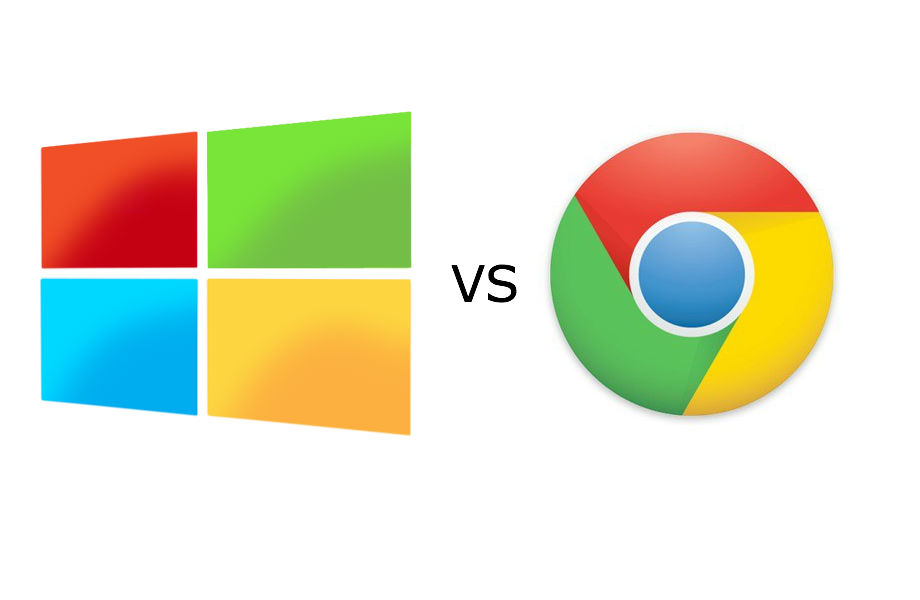Windows 8.1 vs Google Chrome OS review
Can your business save money by using Chrome OS instead of Windows?


Price
While there are free builds of Chrome OS available online, these are unofficial, unsupported and not the software you want to be using in a business environment.
Investing in Chrome OS means purchasing hardware, but the cost is low. Chromebook laptops start at 179 while the latest Chromebox desktops from Asus start at 169 including VAT.
Combine this with a Google Apps for Business account at 3.30 per month ex VAT and moving to Chrome could involve real cost savings.
Basic Windows laptops and desktops are available at between 200 to 230, though performance is likely to degrade quickly and not all are as business-ready as the high-end Chromebooks. An entry-level Office 365 subscription with access to the online, rather than desktop, Office apps comes in at 3.10 per month ex VAT.
Winner: Chrome OS, but not by as big a margin as you might think.
Verdict
To recap Windows 8.1 won three categories: Features/flexibility, applications and cloud connectivity. Chrome OS won in the area of security and cost whereas performance and interface were tied.
For many small businesses, Windows 8.1 remains the most versatile and practical of operating system. But there are Office scenarios where a Chromebook or Chromebox could handle your requirements for less, and reduce the amount of time you have to spend maintaining systems. Employees who need access to basic word processing apps and the internet would have their requirements fulfilled with a Chromebook.
Moving from Windows to Chrome OS involves a little risk, but for many small businesses there could be significant savings to be made and opportunities to change the way you work.
Get the ITPro daily newsletter
Sign up today and you will receive a free copy of our Future Focus 2025 report - the leading guidance on AI, cybersecurity and other IT challenges as per 700+ senior executives
Stuart has been writing about technology for over 25 years, focusing on PC hardware, enterprise technology, education tech, cloud services and video games. Along the way he’s worked extensively with Windows, MacOS, Linux, Android and Chrome OS devices, and tested everything from laptops to laser printers, graphics cards to gaming headsets.
He’s then written about all this stuff – and more – for outlets, including PC Pro, IT Pro, Expert Reviews and The Sunday Times. He’s also written and edited books on Windows, video games and Scratch programming for younger coders. When he’s not fiddling with tech or playing games, you’ll find him working in the garden, walking, reading or watching films.
You can follow Stuart on Twitter at @SATAndrews.
-
 Why keeping track of AI assistants can be a tricky business
Why keeping track of AI assistants can be a tricky businessColumn Making the most of AI assistants means understanding what they can do – and what the workforce wants from them
By Stephen Pritchard
-
 Nvidia braces for a $5.5 billion hit as tariffs reach the semiconductor industry
Nvidia braces for a $5.5 billion hit as tariffs reach the semiconductor industryNews The chipmaker says its H20 chips need a special license as its share price plummets
By Bobby Hellard
-
 Tiny11 review: Windows 11 with only 2GB of RAM
Tiny11 review: Windows 11 with only 2GB of RAMReview A version of Windows 11 for older machines that don't meet the full requirements
By Nik Rawlinson
-
 Red Hat Enterprise Linux becomes foundational operating system for Cohesity Data Cloud
Red Hat Enterprise Linux becomes foundational operating system for Cohesity Data CloudNews New strategic partnership between Red Hat and Cohesity aims to drive innovation in the data security and management space
By Daniel Todd
-
 Ubuntu shifts to four-week update cycle
Ubuntu shifts to four-week update cycleNews Critical fixes will also come every two weeks, mitigating the issues involved with releasing prompt patches on the old three-week cadence
By Richard Speed
-
 AlmaLinux follows Oracle in ditching RHEL compatibility
AlmaLinux follows Oracle in ditching RHEL compatibilityNews Application binary compatibility is now the aim with 1:1 now dropped
By Richard Speed
-
 How big is the Windows 10 cliff-edge?
How big is the Windows 10 cliff-edge?ITPro Network With some comparing the upcoming Windows 10 end of life to Windows XP, we ask members of the ITPro Network for their insight
By Jane McCallion
-
 Everything you need to know about the latest Windows 11 updates - from bug fixes to brand-new features
Everything you need to know about the latest Windows 11 updates - from bug fixes to brand-new featuresNews Two new cumulative updates are on the way and will be installed automatically on Windows 10 and Windows 11 machines
By Rory Bathgate
-
 How to download a Windows 11 ISO file and perform a clean install
How to download a Windows 11 ISO file and perform a clean installTutorial Use a Windows 11 ISO to install the operating system afresh
By John Loeppky
-
 We could all benefit from better Windows and macOS accessibility features
We could all benefit from better Windows and macOS accessibility featuresOpinion Today’s accessibility features can help you work through a nasty injury, but there’s still plenty of room for improvement
By Barry Collins